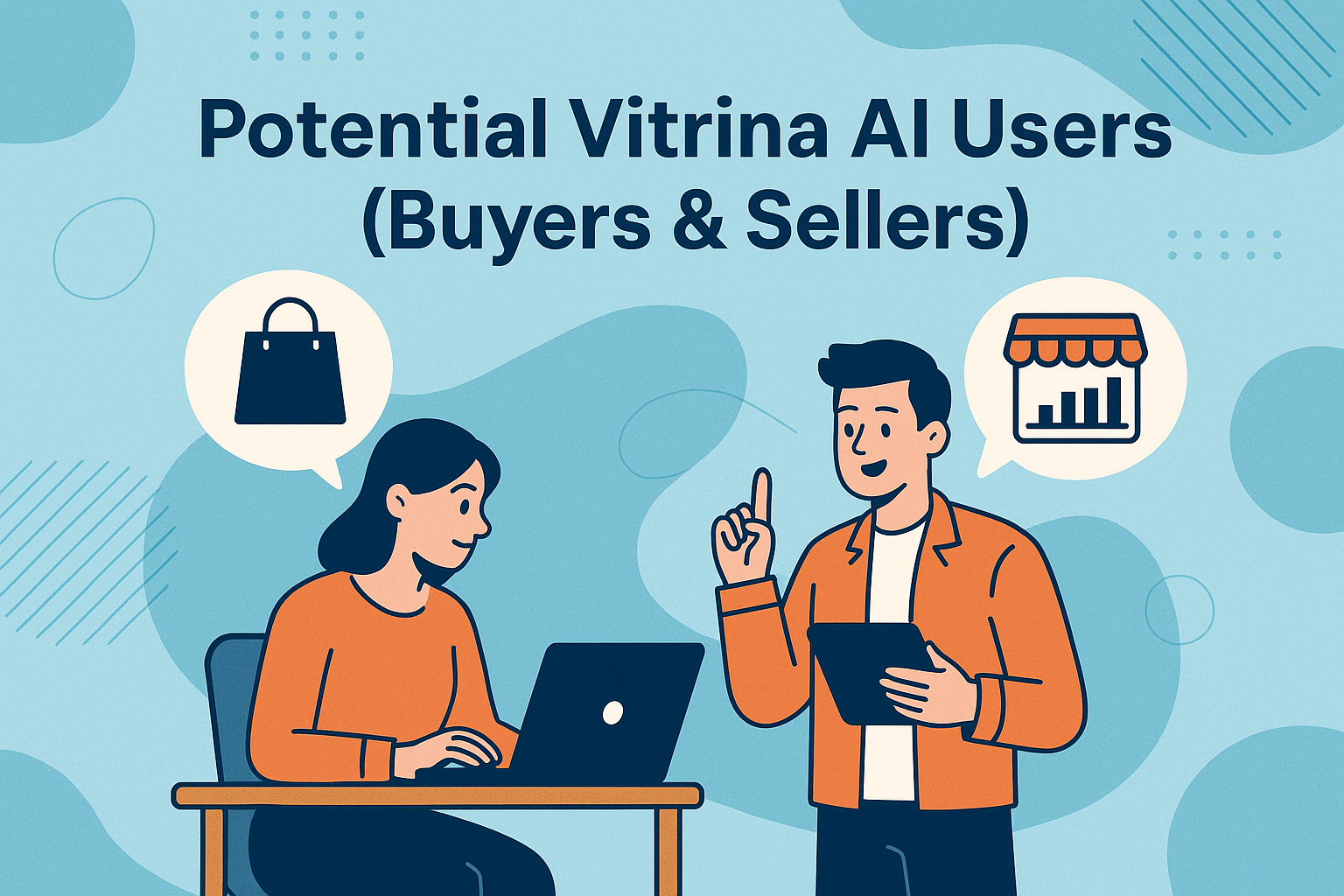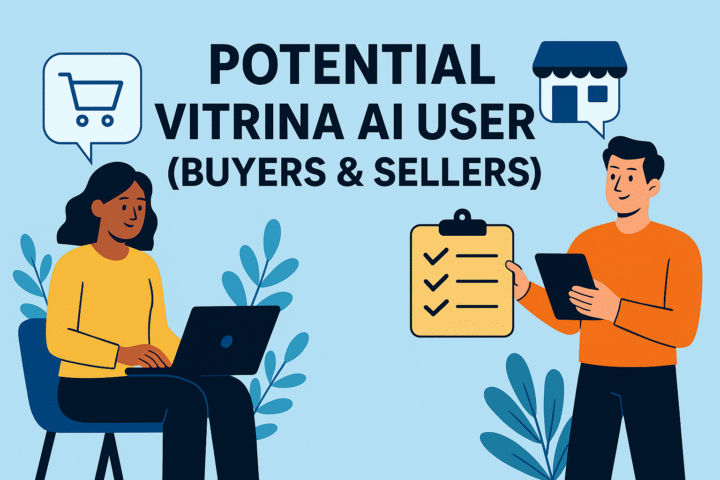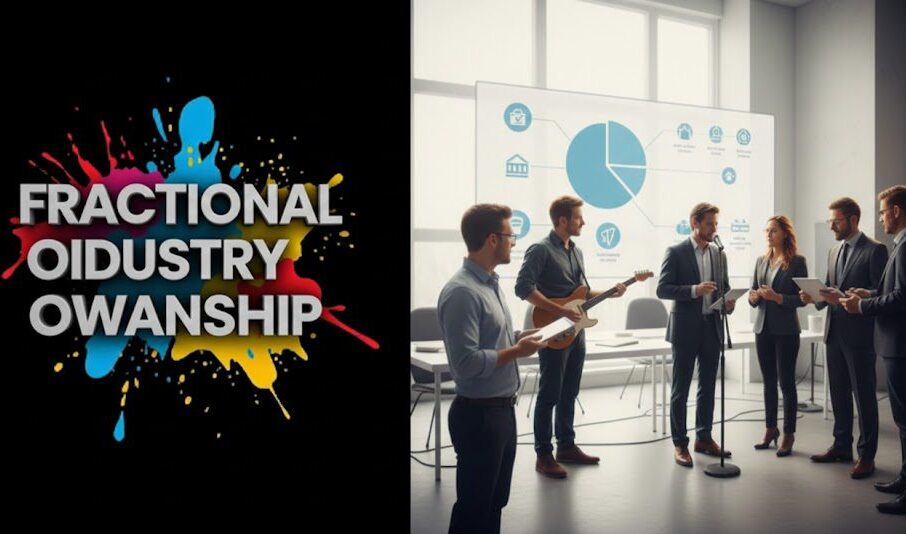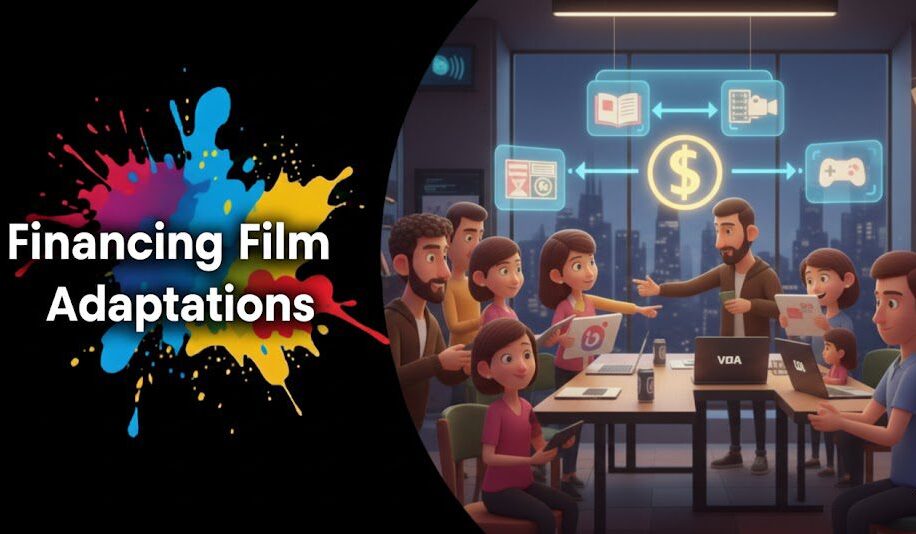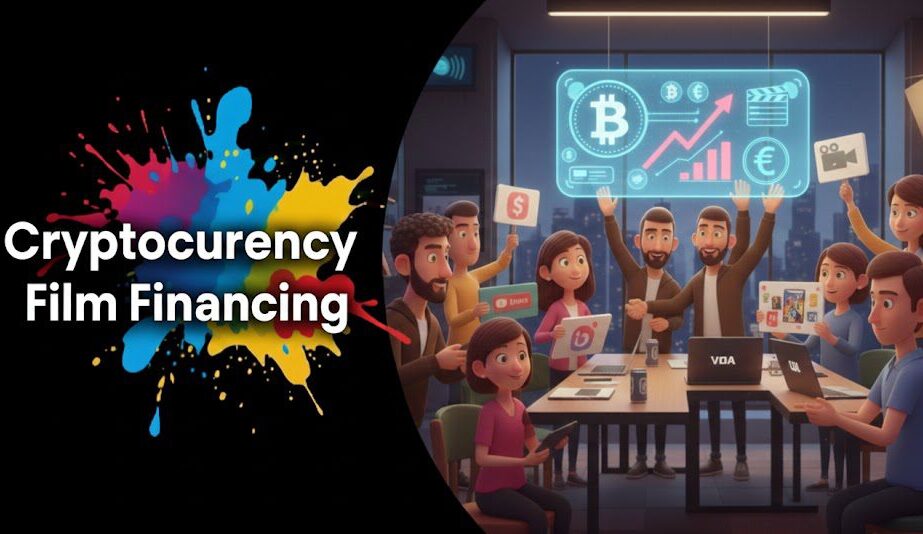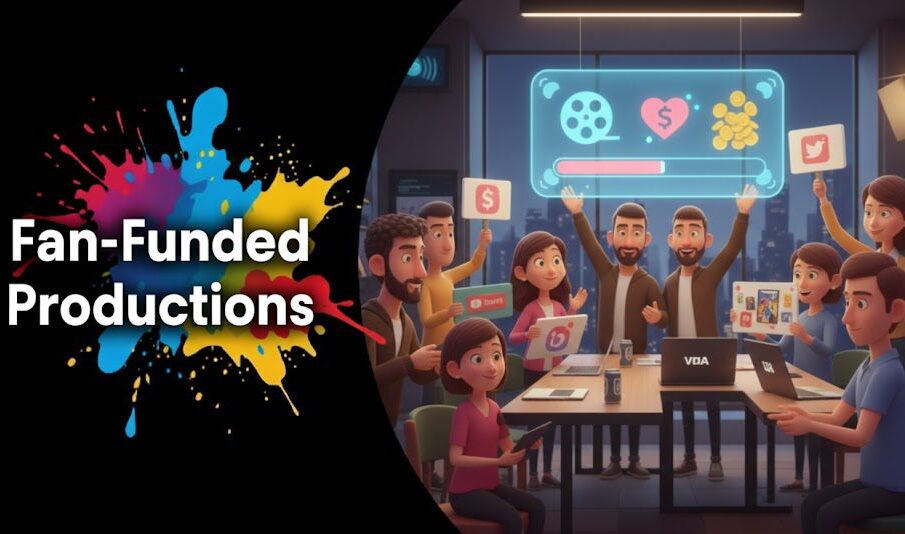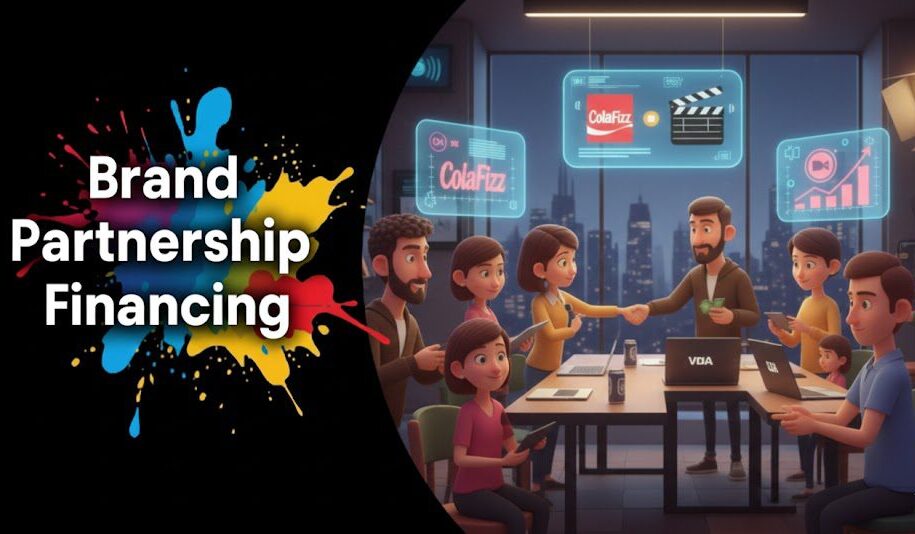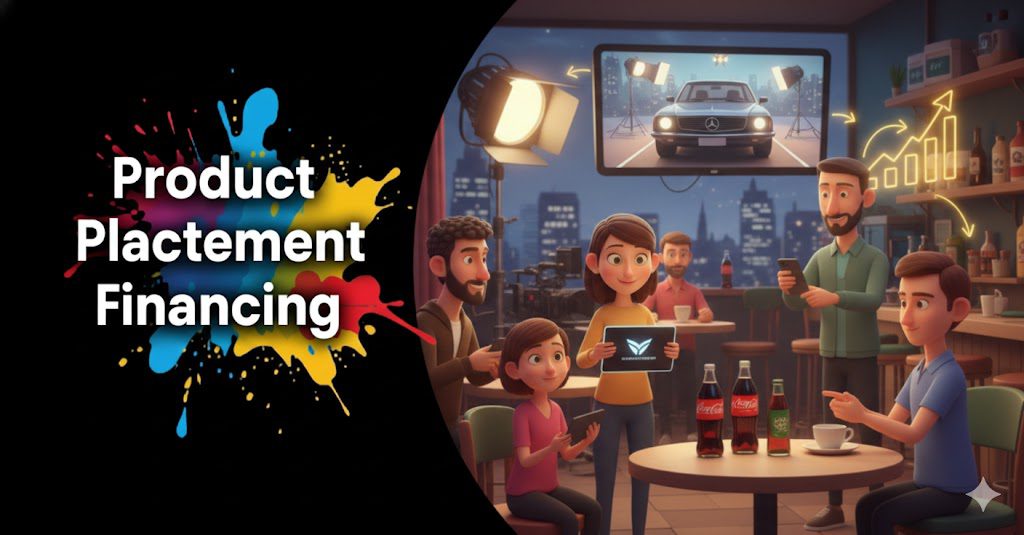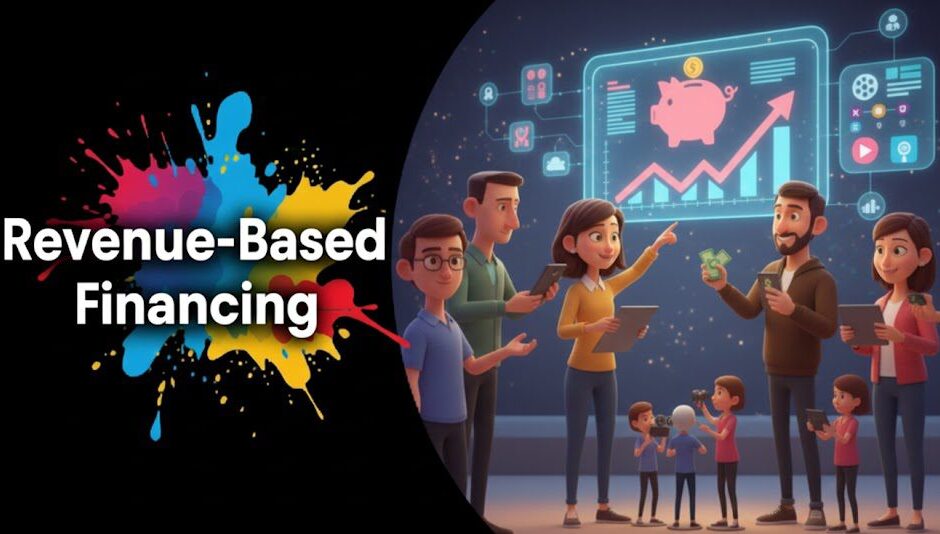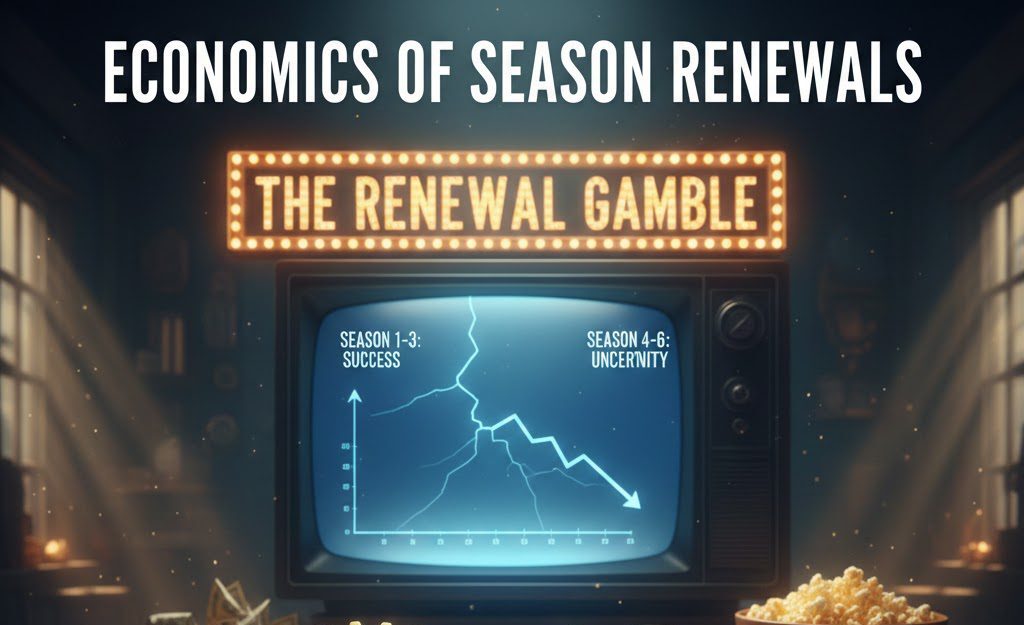Introduction
The traditional ways of buying and selling film and TV content rights – relying heavily on physical markets, personal networks, and manual searches – are rapidly being transformed. In their place, a new era of efficiency, transparency, and global connectivity is dawning, largely thanks to the rise of the modern content licensing marketplace. These digital platforms, particularly those enhanced by an AI content platform backend, are fundamentally changing how content deals are discovered, negotiated, and managed.
For buyers seeking a streamlined path to intelligent content discovery and sellers aiming for broader reach, these B2B media marketplaces offer powerful solutions. This article explores how these platforms are revolutionizing the industry, with a look at how solutions like Vitrina AI are at the forefront of streamlining content deals and enabling truly data-driven licensing.
Table of content
- Introduction
- Key-Takeaways
- The Old Guard: Challenges in Traditional Content Licensing
- The Emergence of the Modern Content Licensing Marketplace
- Intelligent Content Discovery: How AI is Changing the Game
- Streamlining Content Deals: From Pitch to Agreement
- Data-Driven Licensing: Making Smarter Decisions
- Advantages for Content Sellers in the New Ecosystem
- Advantages for Content Buyers in the Modern Marketplace
- Vitrina AI: A Case Study in Revolutionizing Licensing (Subtle Focus)
- The Future Outlook for B2B Media Marketplaces
- Conclusion
- FAQs
Key Takeaways
| Marketplace Evolution | Core Insight | |
|---|---|---|
| The Modern Content Licensing Marketplace | Digital platforms that facilitate the buying and selling of content rights, often leveraging AI and data analytics. | |
| Intelligent Content Discovery | AI-powered search and recommendation tools help buyers find relevant content quickly and efficiently from global catalogs. | |
| Streamlining Content Deals | Marketplaces can accelerate initial negotiations, standardize information sharing, and simplify rights management. | |
| Data-Driven Licensing | Access to market trends, performance insights, and audience data empowers more informed decision-making for both buyers and sellers. | |
| Benefits for Sellers | Increased global visibility for their catalogs, access to a wider pool of buyers, efficient marketing. | |
| Benefits for Buyers | Easier sourcing of diverse content, better alignment with audience needs, optimized acquisition budgets. | |
| Vitrina AI Features | Subtly woven throughout, Vitrina exemplifies how an AI content platform provides these revolutionary solutions. | |
| Further Learning | For a foundational understanding, see our Definitive Guide to Content Licensing. | |
Want to Make Smarter, Data-Driven Licensing Decisions?

The Old Guard: Challenges in Traditional Content Licensing
For decades, the process of licensing films and TV shows relied heavily on personal relationships, physical content markets, and manual processes. While these methods have their merits, they also come with inherent challenges that can make the content licensing marketplace feel opaque and inefficient. Sellers struggled with reaching a broad enough range of buyers, especially internationally. Buyers, on the other hand, faced difficulties in discovering content that perfectly matched their specific needs amidst a sea of options. Negotiating deals could be a protracted affair, and managing rights across numerous agreements often became a complex administrative burden. These traditional hurdles paved the way for innovation and the need for a more modern approach to streamlining content deals.
Common Pain Points:
- Limited Discoverability: Finding the right content or the right buyer often depended on who you knew or chanced upon at a market.
- Time-Consuming Processes: From initial pitching and screening to negotiating terms and finalizing contracts, deals could take many months.
- Lack of Transparency: Information on pricing, rights availability, and market demand was often fragmented and not easily accessible.
- High Transaction Costs: Attending multiple international markets, legal fees, and administrative overhead could be substantial.
- Inefficient Rights Management: Manually tracking thousands of deals, territories, windows, and expiries was prone to errors and missed opportunities.
These challenges highlighted the need for a more efficient B2B media marketplace.
| Traditional Challenge | Impact on Buyers | Impact on Sellers |
|---|---|---|
| Limited Discoverability | Difficulty finding niche or specific content. | Struggle to reach relevant global buyers. |
| Inefficient Processes | Long lead times for acquisition. | Delayed revenue, high administrative burden. |
| Lack of Data Transparency | Difficulty in valuing content or assessing demand. | Uncertainty in pricing, missed market opportunities. |
The Emergence of the Modern Content Licensing Marketplace
In response to the limitations of traditional methods, the modern content licensing marketplace has emerged, driven by digital technology and a desire for greater efficiency and global reach. These platforms are transforming how content rights are bought and sold, creating a more connected and intelligent ecosystem. They act as centralized hubs where sellers can showcase their catalogs to a worldwide audience of buyers, and buyers can efficiently search for and discover content that meets their specific programming needs. By digitizing many aspects of the licensing lifecycle, these marketplaces are significantly streamlining content deals and fostering a more dynamic and accessible global trade in media intellectual property.
Key Characteristics of Modern Marketplaces:
- Digital Catalogs: Extensive, searchable databases of films, TV series, and other content available for licensing, complete with metadata, trailers, and often secure screeners.
- Global Reach: Connecting buyers and sellers from different countries and regions, breaking down geographical barriers.
- Efficient Search and Filtering: Tools that allow users to find content based on genre, language, rights availability, territory, budget, and other specific criteria.
- Direct Communication Channels: Facilitating initial contact and discussions between interested parties.
- Data & Analytics (Often): Providing insights into market trends, content performance, and buyer interest.
An advanced AI content platform like Vitrina embodies these characteristics, offering sophisticated tools for both sides of a deal.
| Marketplace Feature | Primary Benefit | Impact on Licensing |
|---|---|---|
| Centralized Digital Catalogs | Easy access to a wide range of available content. | Speeds up content discovery for buyers. |
| Global Connectivity | Connects buyers and sellers across borders. | Expands market opportunities for sellers. |
| Advanced Search/Filter | Precise targeting of content or buyers. | More relevant matches, less wasted time. |
Intelligent Content Discovery: How AI is Changing the Game
One of the most revolutionary aspects of the modern content licensing marketplace is the integration of Artificial Intelligence (AI) to power intelligent content discovery. In an ocean of available media, finding the perfect film or TV show that aligns with a platform’s audience and strategic goals can be like finding a needle in a haystack. AI algorithms are now capable of analyzing vast datasets – including content metadata, genre classifications, thematic elements, historical performance, and even viewer sentiment – to provide highly relevant and personalized recommendations to content buyers. This is a significant leap from traditional keyword searches or manual browsing, making the initial sourcing phase of licensing far more targeted and efficient.
AI-Powered Search and Recommendation:
- Contextual Understanding: AI can go beyond simple keyword matching to understand the context and nuances of a buyer’s search query or a platform’s content profile.
- Personalized Suggestions: Based on a buyer’s past acquisition history, stated preferences, and real-time platform needs, an AI content platform can proactively suggest suitable titles.
- Identifying Hidden Gems: AI can help uncover valuable content from smaller or international producers that might otherwise be overlooked in traditional discovery processes.
- Predictive Analytics: Some AI tools can even help forecast the potential audience appeal or performance of a piece of content on a specific platform, aiding in the evaluation process.
Vitrina AI features, for example, leverage these capabilities to enhance how buyers find content.
| AI Discovery Feature | How it Works | Advantage |
|---|---|---|
| Contextual Search | Understands nuanced queries, not just keywords. | More relevant search results for buyers. |
| Personalized Recommendations | Learns buyer preferences over time. | Proactively suggests highly suitable content. |
| Predictive Performance Analysis | Estimates audience appeal/success. | Helps buyers make more confident acquisition choices. |
Ready to Tap into a Global B2B Media Marketplace?

Streamlining Content Deals: From Pitch to Agreement
Beyond just improving discovery, modern content licensing marketplace platforms are increasingly focused on streamlining content deals throughout their lifecycle. The goal is to reduce friction, save time, and make the entire process – from the initial pitch and expression of interest to the finalization of terms – more efficient for both buyers and sellers. While complex legal negotiations will always require human expertise, these platforms can facilitate many of the preceding and surrounding steps, making the journey to a signed agreement smoother and faster within the B2B media marketplace.
How Marketplaces Facilitate Smoother Transactions:
- Standardized Information Presentation: Sellers present their content information (metadata, rights, screeners) in a consistent format, making it easier for buyers to evaluate multiple titles quickly.
- Direct Communication Tools: Integrated messaging systems allow buyers and sellers to connect directly to ask questions, express interest, and initiate discussions without relying solely on email or external communication.
- Secure Screener Access: Providing secure, often watermarked, online screeners simplifies the review process for buyers while protecting sellers’ IP.
- Rights Availability Management: Some platforms offer tools for sellers to manage and display their “avails” (available rights for specific territories/windows), giving buyers clear visibility.
- Term Sheet Templates (Potentially): While not replacing legal agreements, some platforms might offer standardized term sheet templates to help structure initial offers and discussions around key deal points.
- Deal Tracking: Dashboards or tools to help both parties keep track of ongoing discussions, offers, and the status of potential deals.
These features contribute significantly to a more efficient media licensing procedure.
| Streamlining Feature | Benefit for Buyers | Benefit for Sellers |
|---|---|---|
| Standardized Listings | Easy comparison of content, quick access to key info. | Professional presentation, ensures all vital info is shared. |
| Direct Messaging | Faster clarification, direct line to decision-makers. | Quicker feedback, direct engagement with interested parties. |
| Secure Screeners | Convenient and safe way to review content. | Controlled access to valuable IP during evaluation. |
| Avails Management Tools | Clear visibility on what rights are actually available. | Efficiently showcases licensable inventory, avoids conflicts. |
Data-Driven Licensing: Making Smarter Decisions
A significant advantage offered by many modern content licensing marketplace solutions, especially an AI content platform, is the move towards data-driven licensing. Historically, many licensing decisions were based on gut instinct, personal relationships, or limited market information. Today, platforms can aggregate and analyze vast amounts of data related to content performance, audience preferences, market trends, and even pricing benchmarks. This empowers both buyers and sellers to make more informed, strategic decisions, reducing risk and optimizing outcomes when it comes to valuing content and structuring deals.
Types of Data Utilized:
- Viewership and Engagement Data: Insights into what content resonates with specific demographics on different platforms (often aggregated and anonymized).
- Market Demand Signals: Information on what types of content buyers are actively searching for. Vitrina’s Project Tracker, for example, provides insights into active M&E projects and company activities.
- Pricing Comparables (“Comps”): Data on what similar content has licensed for in comparable territories and windows, helping to establish fair market value.
- Genre and Trend Analysis: Identifying popular and emerging genres or themes globally or in specific regions.
- Performance Prediction: AI models analyzing various factors to forecast the potential success of a title on a particular platform.
How Data Empowers Buyers and Sellers:
For Buyers:
- Make more confident acquisition choices based on potential audience appeal and ROI.
- Negotiate pricing more effectively using market comps.
- Identify underserved niches or emerging trends to capitalize on.
For Sellers:
- Price their content more strategically based on real market demand and comparable values.
- Identify the most promising platforms and territories for their specific content.
- Understand what types of content buyers are actively seeking to inform future production or catalog marketing.
Data-driven licensing is transforming the B2B media marketplace from a relationship-and-intuition business to one also guided by robust analytics.
| Data Application | Impact on Buyers | Impact on Sellers |
|---|---|---|
| Valuation & Pricing | Negotiate fair prices based on market data. | Set optimal prices, justify asking fees. |
| Demand Forecasting | Identify content likely to perform well with their audience. | Target buyers actively seeking their type of content. |
| Strategic Planning | Inform long-term acquisition and programming strategy. | Guide content development and sales focus. |
Advantages for Content Sellers in the New Ecosystem
For content creators, producers, and distributors (the sellers), the modern content licensing marketplace, especially an AI content platform, offers a wealth of advantages over traditional sales methods. These platforms provide powerful tools and global reach, enabling sellers to more effectively showcase their catalogs, connect with a wider and more targeted range of buyers, and ultimately improve their ability to monetize their valuable film and TV assets. It’s about leveling the playing field and providing more avenues for streamlining content deals and maximizing revenue.
Key Benefits for Sellers:
- Increased Global Visibility: Listing content on a digital marketplace exposes it to a vast network of international buyers who might be difficult or costly to reach through traditional means alone.
- Access to a Wider Pool of Buyers: Connect with broadcasters, streaming platforms, and distributors of all sizes, including those in niche markets or emerging territories.
- More Qualified Leads: Buyers using these platforms often have specific needs and use search/filter tools, meaning inquiries are more likely to come from genuinely interested and relevant parties.
- Efficient Marketing and Promotion: A centralized platform to showcase trailers, screeners, synopses, and rights availability, reducing the need to send materials individually to countless contacts.
- Data Insights on Buyer Interest: Many platforms provide analytics on which buyers are viewing their listings, what content types are trending, and what rights are in demand, helping to refine sales strategies. Some Vitrina AI features offer this kind of valuable feedback.
- Reduced Transaction Costs (Potentially): Can lower the costs associated with attending numerous physical markets or extensive individual outreach.
- Streamlined Initial Contact and Negotiation: Facilitates quicker connections and initial discussions, speeding up the early stages of the deal-making process.
These advantages empower sellers in the evolving B2B media marketplace.
| Seller Benefit | How Marketplaces Deliver It | Impact |
|---|---|---|
| Global Reach | Connects with buyers worldwide. | Increased sales opportunities, international penetration. |
| Efficiency | Centralized listings, direct communication. | Reduced time/cost in marketing and initial outreach. |
| Targeted Leads | Buyers actively searching for specific needs. | Higher conversion rate from inquiries to deals. |
Advantages for Content Buyers in the Modern Marketplace
Content acquirers, programmers, and platform managers (the buyers) also stand to gain significantly from the evolution of the content licensing marketplace and the rise of sophisticated AI content platform solutions. In a world demanding fresh and diverse content to keep audiences engaged, these modern tools offer unprecedented efficiency in sourcing, evaluating, and securing the rights to films and TV shows from around the globe. The ability to make faster, more informed decisions is a game-changer for buyers looking to build compelling and competitive content offerings while optimizing their budgets.
Key Benefits for Buyers:
- Vastly Improved Content Discovery: Access to extensive global catalogs of available content, searchable and filterable by highly specific criteria (genre, language, budget, rights, territory, keywords, themes, etc.). This is where intelligent content discovery shines.
- Time and Cost Savings: Reduced time spent on manual sourcing, attending multiple markets (though markets remain important), and sifting through irrelevant pitches.
- Access to Diverse and Niche Content: Easier to find content from independent producers, international territories, or specialized genres that might not be represented by major distributors.
- Data-Driven Evaluation: Access to market data, performance indicators (where available), and AI-powered recommendations to make more informed decisions about a content’s potential fit and value.
- Streamlined Initial Vetting: Quick access to screeners, trailers, and detailed metadata allows for faster initial evaluation of titles.
- Direct Connection with Rights Holders: Facilitates direct communication for inquiries and initial negotiations, potentially speeding up the early stages of streamlining content deals.
- Enhanced Market Transparency: Better visibility into rights availability and potentially pricing trends within the B2B media marketplace.
Platforms like Vitrina are designed to provide these advantages to content buyers.
| Buyer Benefit | How Marketplaces Deliver It | Impact |
|---|---|---|
| Efficient Sourcing | Advanced search, filters, AI recommendations. | Finds relevant content faster, reduces manual effort. |
| Broader Content Access | Global catalogs including indie and niche content. | More diverse and unique programming options. |
| Informed Decisions | Access to data, market insights, easy comparison. | Better ROI on acquisitions, reduced risk. |
Vitrina AI: A Case Study in Revolutionizing Licensing (Subtle Focus)
To illustrate how a modern content licensing marketplace operates and the benefits it brings, let’s consider the example of Vitrina. This AI content platform serves as a dynamic hub for both buyers and sellers in the global M&E industry, embodying many of the revolutionary changes discussed. Vitrina’s approach is centered on leveraging data and artificial intelligence to make the process of content discovery, evaluation, and connection more intelligent and efficient, thereby streamlining content deals for all parties.
For sellers, Vitrina offers a global stage to showcase their film and TV catalogs. By listing their content with detailed metadata and specifying rights availabilities, they gain exposure to a curated network of verified international buyers. The platform’s tools can help them understand what kind of buyers are viewing their content and what demand signals exist in the market, enabling more targeted sales efforts. This is a prime example of a global content marketplace for sellers in action.
For buyers, Vitrina AI features facilitate highly effective intelligent content discovery. Acquisition executives can use sophisticated search filters and receive AI-driven recommendations tailored to their platform’s specific needs and audience profiles. Access to rich data on content, including performance indicators and market trends (like those available via Vitrina’s Project Tracker), supports more data-driven licensing decisions. The platform also simplifies the initial outreach and communication process, making it easier to connect with rights holders and kickstart negotiations. By focusing on these efficiencies, Vitrina helps reduce the time and resources buyers spend on sourcing, allowing them to focus more on curating the best possible content for their viewers.
In essence, platforms like Vitrina are not just passive listing services; they are active enablers of smarter, faster, and more global content licensing transactions, showcasing the tangible benefits of a modern, tech-driven B2B media marketplace.
The Future Outlook for B2B Media Marketplaces
The trajectory for the modern content licensing marketplace is one of continued growth and sophistication. As the global demand for diverse content accelerates and the number of distribution platforms multiplies, the need for efficient, intelligent, and transparent mechanisms for buying and selling rights will only intensify. We can expect B2B media marketplace solutions to become even more integral to the industry’s fabric, with advancements in AI, data analytics, and potentially even blockchain technologies further enhancing their capabilities. The focus will likely remain on streamlining content deals, providing deeper market intelligence for data-driven licensing, and fostering a more connected global ecosystem where every piece of quality content has the best possible chance of finding its audience, and every buyer can efficiently source the programming that will make their platform thrive. Platforms like Vitrina, as an early innovator in the AI content platform space, are well-positioned to lead this evolution.
Conclusion
The emergence and evolution of the modern content licensing marketplace, significantly enhanced by the power of the AI content platform, represents a paradigm shift in how film and TV content is bought and sold globally. These platforms are breaking down traditional barriers, fostering intelligent content discovery, enabling data-driven licensing decisions, and ultimately streamlining content deals for both buyers and sellers. By offering greater transparency, efficiency, and global connectivity, solutions like an AI content platform are empowering industry professionals to navigate the complexities of the media landscape with greater ease and success.
As the demand for diverse content continues to grow across a multitude of platforms, the role of these innovative marketplaces will only become more critical. Companies like Vitrina AI, with its focus on smart technology and comprehensive Vitrina AI features, are not just facilitating transactions; they are helping to shape a more dynamic and accessible future for the entire content ecosystem. To understand the broader context where these marketplaces operate, our Definitive Guide to Content Licensing offers valuable insights.
Ready to experience the future of content licensing? Explore Vitrina AI, the intelligent B2B media marketplace, and revolutionize how you discover, buy, or sell content.
Frequently Asked Questions
A traditional distributor typically acquires rights to content and then actively sells (sub-licenses) that content to various platforms, taking a commission or fee. A content licensing marketplace is more of a platform or technology solution that facilitates the connection and discovery between rights holders (who might be producers, distributors, or sales agents) and content acquirers. It provides the tools for them to find each other and initiate deals, rather than taking on the role of distribution itself.
Some text
Yes, absolutely! One of the significant advantages of a modern content licensing marketplace is that it can provide a platform for independent filmmakers and smaller production companies to showcase their work to a global audience of buyers, an opportunity that might be harder to achieve through traditional channels alone. It helps level the playing field for intelligent content discovery.
While an AI content platform uses technology for discovery and matching, the initial vetting of content quality and rights ownership often still involves a human element from the platform provider or relies on the reputation and due diligence of the sellers listing the content. Buyers should always perform their own evaluation and due diligence before committing to a license. AI can help surface relevant content, but qualitative assessment remains key.


